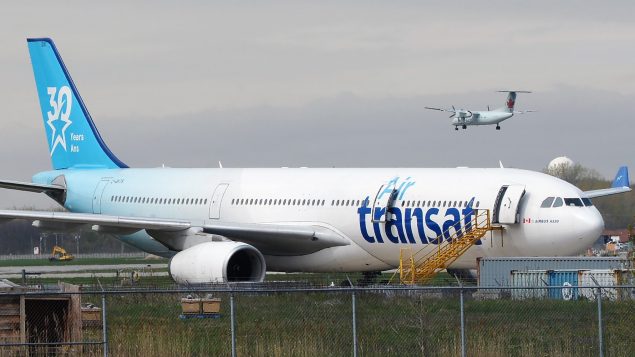Canada’s airline industry woke up Thursday to news of a marriage between the country’s biggest leisure airline and the flag carrier, Air Canada, which could further consolidate the industry in fewer hands.
The board of directors of Transat AT Inc. announced Thursday morning that it has approved a $520-million takeover offer by Air Canada, despite opposition from some of the company’s major shareholders.
Air Canada proposes to pay $13 per share for the travel company.
Under the agreement, Air Canada said it plans to preserve the Transat and Air Transat brands and keep the Transat head office and its key functions in Montreal.
Opposition from major shareholders
However, the deal, which requires approval from two-thirds of Transat shareholders to go through, may face an obstacle in Transat’s biggest investors.
In approving the Air Canada offer, the Transat board turned down a rival bid by Group Mach Inc., a Quebec real estate developer that offered $14 per share for Transat.
Letko, Brosseau and Associates and PenderFund Capital Management, which jointly own a 21.1 per cent stake, have said they would vote against the agreement if the purchase price remained at $13 per share.
Quebec’s Fonds de solidarite FTQ, Franklin Templeton Investments, and the Caisse — Quebec’s pension fund manager — are also among the top five investors, collectively holding a 26.18 per cent stake.
Analyst Tim James at TD Securities said he suspects Air Canada will have to make numerous concessions to regulatory authorities and unions for the deal to go through — and may indeed have to sweeten the pot for investors a little,too.
“If shareholders end up rejecting Air Canada’s current offer, we believe that there may be opportunities for Air Canada to generate value that could support a higher offer price, assuming any required concessions are not overly onerous,” he said in a note on Thursday.
Regulator scrutiny
The deal will also likely invite scrutiny from Canada’s Competition Bureau as Air Canada and Transat have a combined 60 per cent slice of the transatlantic market from Canada.
Both Air Canada and Transat sought to play down the threat of market dominance.
“Travellers will benefit from the merged companies’ enhanced capabilities in the highly competitive, global leisure travel market and from access to new destinations, more connecting traffic and increased frequencies,” Air Canada chief executive Calin Rovinescu said in a release.
“For our clients, it will offer even more choices and possibilities,” said Transat chief executive Jean-Marc Eustache, who co-founded the company’s predecessor in the early 1980s.
He said customers can continue to book flights and packages “with complete confidence,” as bookings will be honoured before and after deal closes.
The move comes against the backdrop of more upheaval in the industry. Air Canada’s rival, WestJet, has agreed to be purchased by buyout firm Onex Corp. for $5 billion.
With files from The Canadian Press and Pete Evans of CBC News







For reasons beyond our control, and for an undetermined period of time, our comment section is now closed. However, our social networks remain open to your contributions.